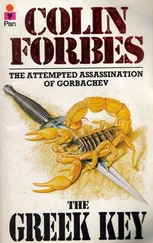Colleen McCullough - 2. The Grass Crown
Здесь есть возможность читать онлайн «Colleen McCullough - 2. The Grass Crown» весь текст электронной книги совершенно бесплатно (целиком полную версию без сокращений). В некоторых случаях можно слушать аудио, скачать через торрент в формате fb2 и присутствует краткое содержание. Жанр: Современная проза. Описание произведения, (предисловие) а так же отзывы посетителей доступны на портале библиотеки ЛибКат.
- Название:2. The Grass Crown
- Автор:
- Жанр:
- Год:неизвестен
- ISBN:нет данных
- Рейтинг книги:5 / 5. Голосов: 1
-
Избранное:Добавить в избранное
- Отзывы:
-
Ваша оценка:
- 100
- 1
- 2
- 3
- 4
- 5
2. The Grass Crown: краткое содержание, описание и аннотация
Предлагаем к чтению аннотацию, описание, краткое содержание или предисловие (зависит от того, что написал сам автор книги «2. The Grass Crown»). Если вы не нашли необходимую информацию о книге — напишите в комментариях, мы постараемся отыскать её.
2. The Grass Crown — читать онлайн бесплатно полную книгу (весь текст) целиком
Ниже представлен текст книги, разбитый по страницам. Система сохранения места последней прочитанной страницы, позволяет с удобством читать онлайн бесплатно книгу «2. The Grass Crown», без необходимости каждый раз заново искать на чём Вы остановились. Поставьте закладку, и сможете в любой момент перейти на страницу, на которой закончили чтение.
Интервал:
Закладка:
"All hail to thee, praetor of Rome! All hail to thee, and get thee home! What need have we at this Picalia To blinded be by Rome's regalia? Look at him raised to haughty height Never amazed by any sight! It is not fair, men of Asc'lum That he should share our ergast'lum! Come one come all, let's toss him out! Let's see him fall, the filthy lout! He sits too tall on his iv'ry seat Just got one ball and it's dead meat! Give him a kick, the Roman prick, Make him real sick with ours to lick!"
He got no further with his invented song. One of Quintus Servilius's bodyguards disengaged his spear from between his knees, and without even bothering to get up, threw it; the Samnite tenor fell dead, the spear protruding hideously through back and front, his face still wearing its look of utter contempt. A profound silence descended, the Picentine audience not able to believe what had happened, no one sure what to do. And as they sat numbed, the Latin actor Saunio, a favorite of the crowd, bounded to the far side of the stage and began feverishly to talk while four of his fellows dragged the body away and the two Roman actors disappeared in a hurry. "Dear Picentes, I am not a Roman!" Saunio cried, clinging like an ape to one of the pillars and jigging up and down, his mask dangling from the fingers of one hand. "Do not, I implore you, lump me in with those fellows there!" He pointed to the Roman dais. "I am a mere Latin, dear Picentes, I too suffer the fasces marching up and down our beloved Italy, I too deplore the acts of these arrogant Roman predators!" At which point Quintus Servilius rose from his ivory curule chair, stepped down from the dais, walked across the orchestra space, and mounted the stage. "If you don't want a spear through your chest, actor, get yourself off!" said Quintus Servilius to Saunio. "Never in my life have I had to put up with such insults! Think yourselves lucky, you Italian scum, that I don't order my men to kill the lot of you!" He turned from Saunio to the audience, the acoustics so good he was able to speak in a normal voice and be heard at the very top of the cavea. "I shall not forget what was said here!" he snapped. "Roman auctoritas has been mortally offended! The citizens of this Italian dungheap will pay dearly, so much I promise you!" What happened next happened so quickly that no one afterward quite understood its mechanics; the whole five thousand Picentines in the audience descended in one screaming, flailing mass upon the two Roman front rows, leaping to the vacant half circle of the orchestra and turning there to fall upon troopers and lictors and togate Roman citizens in a solid wall of moving bodies and plucking, pulling, pinching hands. Not one spear was raised, not one sword was drawn, not one axe was detached from its surrounding bundle of rods; troopers and lictors, togate men and their ornamented women, all were literally torn apart. The front of the theater became a welter of blood, bits of bodies were thrown like balls from one side of the orchestra to the other. The crowd shrieked and squealed shrilly, wept with joy and hate, and reduced forty Roman officials and two hundred Roman businessmen and their women to chunks of bleeding meat. Fonteius and Fabricius perished among the first. Nor did Quintus Servilius of the Augur's family escape. Some of the crowd jumped onto the stage before he could think of moving, and took exquisite pleasure in tearing off his ears, twisting his nose until it came away, gouging out his eyes, ripping his fingers off all cruelly bitten by their rings, and then, as he screamed without pause, they lifted him at feet and hands and head, and pulled him effortlessly into six heaving pieces. When it was finished the Picentines of Asculum cheered and danced, heaped the various bits of every Roman slain in the theater upon a pile in the forum, and ran through the streets dragging those Romans who had not gone to see the play to their deaths. By nightfall, no Roman citizen or relative of a Roman citizen remained alive within Asculum Picentum. The town shut its massive gates and began to discuss how it would both provision itself and survive. No one regretted the madness of a moment; it was rather as if the action had finally lanced a huge festering abscess of hate within them, and now they could enjoy that hate, vow never again to tolerate Rome.
3
Four days after the events at Asculum Picentum, the news of them reached Rome. The two Roman actors had escaped the stage and hidden, shivering in terror, watching the ghastly slaughter in the theater, then had fled the city just before the gates were closed. It took them four days to get to Rome, walking part of the way, begging seats in mule carts and pillion rides on horses, too terrified to say a word about Asculum Picentum until they reached safety. As they were actors, the tale lost nothing in its retelling; all of Rome recoiled in incredulous horror, the Senate donned mourning for its lost praetor, and the Vestal Virgins made an offering for Fonteius, the father of their newest little acquisition. If anything about the massacre could be termed fortunate, it was perhaps that the elections in Rome had already taken place, thus sparing the Senate at least the ordeal of having to cope with Philippus unaided. Lucius Julius Caesar and Publius Rutilius Lupus were the new consuls, a good man in Caesar tied by economic necessity to a conceited but rich inadequacy like Lupus. It was another eight-praetor year, with the usual mixture of patrician and plebeian, competent and incompetent, getting in; the new consul Lucius Julius Caesar's cross-eyed younger brother, Caesar Strabo, was a curule aedile. The quaestors included none other than Quintus Sertorius, whose winning of the Grass Crown in Spain would procure him any and every office. Gaius Marius, the cousin of his mother, had already ensured that Sertorius possessed the senatorial census; when a new pair of censors were elected, he was sure to be admitted to the Senate. Of law courts he may have seen little, but for such a young man, his name was quite famous, and he had that magical appeal to the general populace Gaius Marius also possessed. Among an unusually impressive collection of tribunes of the plebs was one hideous name Quintus Varius Severus Hybrida Sucronensis, already vowing that the moment the new college entered office, he would see that those who had supported citizenship for Italy would pay, from the highest to the lowest. When the news of the massacre at Asculum Picentum arrived, it provided Varius with wonderful ammunition; not yet in office, he canvassed tirelessly among the knights and Forum frequenters for support of his program of vengeance in the Plebeian Assembly. For the Senate, exasperated by the harping reproaches of Philippus and Caepio, the old year could not wind down quickly enough. Then hard on the heels of the news from Asculum Picentum came a deputation of twenty Italian noblemen from the new capital of Italica, though they said nothing about Italica or Italia; they simply demanded an audience with the Senate on the matter of granting the franchise to every man south of not the Arnus and the Rubico, but the Padus in Italian Gaul! That new boundary had been shrewdly calculated to antagonize everyone in Rome from Senate to Head Count, for the leaders of the new nation Italia no longer wanted to be enfranchised. They wanted war. Closeted with the delegation in the Senaculum, a little building adjacent to the temple of Concord, Marcus Aemilius Scaurus Princeps Senatus attempted to deal with this piece of blatant impudence. A loyal supporter of Drusus, after the death of Drusus he saw no point in continuing to press for a general enfranchisement; he liked being alive. “You may tell your masters that nothing can be negotiated until full reparation for Asculum Picentum has been made," said Scaurus disdainfully. "The Senate will not see you." "Asculum Picentum is simply steely evidence of how strongly all Italy feels," said the leader of the delegation, Publius Vettius Scato of the Marsi. "It is not in our power to demand anything of Asculum Picentum, anyway. That decision belongs to the Picentes." "That decision," said Scaurus harshly, "belongs to Rome." "We ask again that the Senate see us," said Scato. "The Senate will not see you," said Scaurus, adamant. Whereupon the twenty men turned to leave, none looking at all downcast, Scaurus noted. Last to go, Scato slipped a rolled document into Scaurus's hand. "Please take this, Marcus Aemilius, on behalf of the Marsi," he said. Scaurus didn't open the document until he got home, when his scribe, to whom he had entrusted it, gave it back to him. Pulling it apart with some annoyance because he had forgotten it, he began to decipher its contents with growing amazement. At dawn he summoned a meeting of the Senate, poorly attended because of the short notice; as usual, Philippus and Caepio did not bother to turn up. But Sextus Caesar did, as did the incoming consuls and praetors, all the outgoing tribunes of the plebs and most of the incoming ones with the conspicuous exception of Varius. The consulars were present; counting heads, Sextus Caesar saw in some relief that he did have a quorum after all. "I have here," said Scaurus Princeps Senatus, "a document signed by three men of the Marsi Quintus Poppaedius Silo, who calls himself consul Publius Vettius Scato, who calls himself praetor and Lucius Fraucus, who calls himself councillor. I shall read it out to you.
Читать дальшеИнтервал:
Закладка:
Похожие книги на «2. The Grass Crown»
Представляем Вашему вниманию похожие книги на «2. The Grass Crown» списком для выбора. Мы отобрали схожую по названию и смыслу литературу в надежде предоставить читателям больше вариантов отыскать новые, интересные, ещё непрочитанные произведения.
Обсуждение, отзывы о книге «2. The Grass Crown» и просто собственные мнения читателей. Оставьте ваши комментарии, напишите, что Вы думаете о произведении, его смысле или главных героях. Укажите что конкретно понравилось, а что нет, и почему Вы так считаете.












